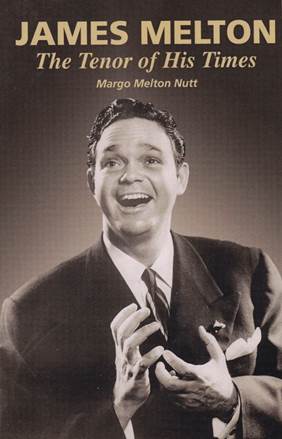
JAMES MELTON, The Tenor of His Times, From Moultrie Georgia to the Metropolitan Opera.
By Margo Melton Nutt

Self Published: Hawk Pine Press, Norwich, Vermont USA $20.00.
How to order the book? : via the author: Margo.Nutt@Dartmouth.edu or Amazon.com
James Melton’s is a uniquely American story. The lad from Moultrie, Georgia went on to become famous in his own country as a tenor entertainer in movies and radio, but felt his talent would only matter, or rather be deemed only worthwhile, only when he was validated on the stage of the Metropolitan Opera.
His daughter, Margo Melton Nutt, has written a very personal biography of her father. As Margo was only a teenager when he died, she does not have “in person” memories of her dad from his great period when he was a famous radio star. However, between the information available on the internet and from his scrapbooks as well as what her mother confided to her, she has fashioned a very readable narrative.
In his early days the talented, handsome Southern boy worked with a famous quartet, The Revelers, as its tenor, who toured the United States and even played a season in Europe where he met Richard Tauber. He persisted for an audition, and ultimately the famous Samuel Rothawell of Roxy Theatre fame heard him and was hired by the Roxy organization, oftentimes singing “four-a-day”s on the movie circuit; before “talkies” in 1926, live performers had to keep the audiences in movie palaces entertained. He toured the USA in 1934 with George Gershwin singing Gershwin songs in twenty-eight cities in twenty-nine days. He sang some of the “Porgy and Bess” airs even before the show was officially launched in 1935. Eventually his large American fame came from his weekly presence over the radio airwaves. His movie soundtracks and his early television work can be reviewed on the IMDB: http://www.imdb.com/name/nm0578393/?ref_=fn_al_nm_1
On a personal note, I come from Burlington, Vermont in northern New England, near the Canadian border. Of the national network broadcasters Burlington was only served by CBS; we were not able to access either ABC or NBC, important venues for operatic entertainments. We did pick up both the English and French Canadian radio stations (CBC), and they offered a lot of classical music. I remember as a young teenager on Sunday nights at 9pm on our local CBS station we heard James Melton singing ballads, operetta and opera arias. I vaguely recalled that the opening theme song was something by Rachmaninoff.
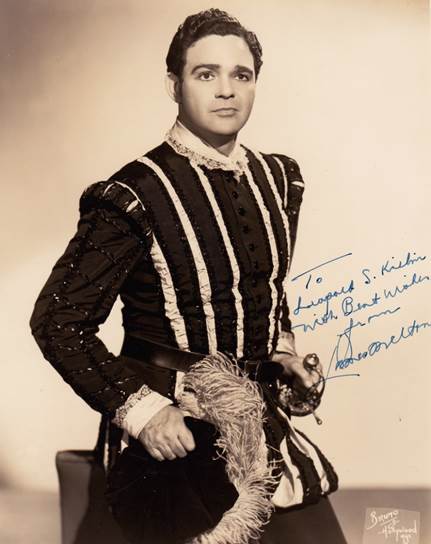
(courtesy Charles Mintzer collection)
On December 7, 1942, the thirty-nine-year-old tenor made his Metropolitan Opera debut as Tamino in an English-language Zauberfloete that also starred Jarmila Novotna, Josephine Antoine, John Brownlee and Ezio Pinza under the baton of Bruno Walter. At the Met he achieved 83 performances in seven roles. His biggest assignment was Wilhelm Meister in Ambroise Thomas’s “Mignon” (18 times), almost all with Rise Stevens, except three times with Jennie Tourel. John Pennino of the Metropolitan Opera Archives, author of the massively researched biography of Stevens, told me that Rise considered Melton to have a superb radio voice, not really an important operatic voice. A sampling of the 16 Melton reviews on the Metropolitan Opera’s database (Metopera.org, archives, database, browse, Melton, James) indicate that Melton was never less than good to very good, but rarely more than that. In 1946 “Madama Butterfly” re-entered the Metropolitan repertory, having been dropped for the duration of the War for obvious reasons. The handsome Melton was a clear choice for Pinkerton and he sang the role 15 times, ten with Licia Albanese (broadcast three times), four with Dorothy Kirsten and one with Elisabeth Barbato. Parenthetically, “Die Meistersinger” with its final apostrophe to High German art was dropped for most of the War (reinstated in January 1945).
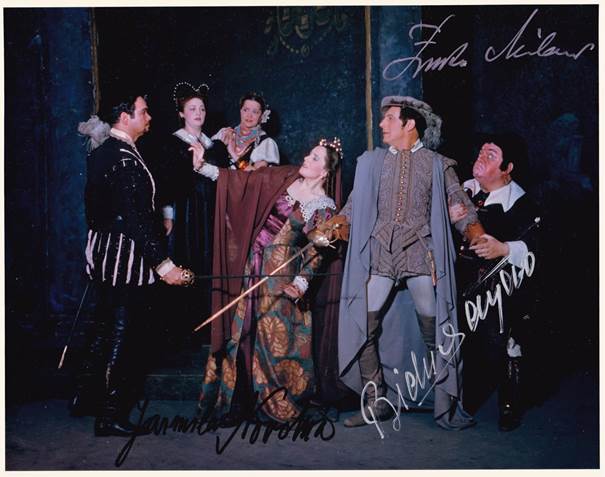
(courtesy Charles Mintzer collection)
The subtitle of this book, “The Tenor of His Times,” is understandable hyperbole from the tenor’s daughter. But, make no mistake about it, James Melton was very famous in the USA from his extensive radio work. Those who question this assertion have no concept of how important radio was in the 1930’s and1940’s. Radio stars often made more money than all but a few opera stars. However, as Melton came to the Met with very little operatic experience, the most he had was at the Cincinnati Zoo summer opera. His Met salary of $200.00 a performance was ultimately raised to $400.00. Rudolf Bing did not engage Melton for his first season in the autumn of 1950.
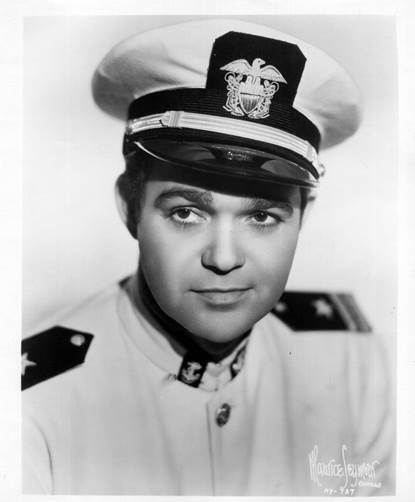
(courtesy Metropolitan Opera Archive)
Coming from the South where most people at that time were nominally Democrats, Melton was a Republican and graced the 1948 Republican convention with renditions of “America, the Beautiful,” “God Bless America,” and “The Battle Hymn of the Republic.” He was a staunch supporter of Thomas Dewey, an Eastern establishment Republican. Miss Nutt quotes the very right-wing, anti-communist pundit, Westbrook Pegler: “Saving the convention from a dead level of loud vulgarity was the program of James Melton on opening night. Mr. Melton’s music is Republican and anti-Communist, and he is one among the few musicians, hams and hacks of the arts who had the honor to be a Republican when the Sinatras and the paltry Hollywood trash were roistering with gangsters and Muscovite traitors.” This is a sample of the 1948 rhetoric during the early McCarthy era. There is no evidence that Melton shared these extreme views.
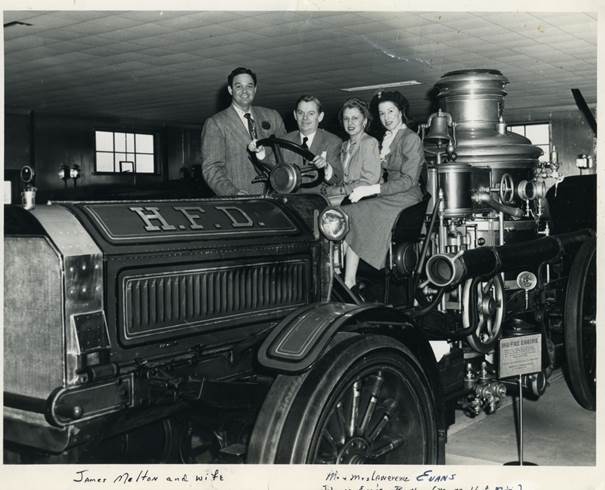
(courtesy Metropolitan Opera Archive)
Melton also achieved significant fame as the collector of vintage automobiles, owning almost a hundred examples. He had to house this large collection, and he built a museum on the grounds of one of his several homes, but eventually the enterprise failed to work financially. He sold a large part of his collection to Winthrop Rockefeller, one of John D. Rockefeller’s sons, for a large sum of money. However the economic drain of his hobby ultimately sank Melton, and he went bankrupt. He went into a deep depression, exacerbated by alcoholism. He died at age 58.
In summary, this book is a good read capturing an era that becomes more and more distant every day.
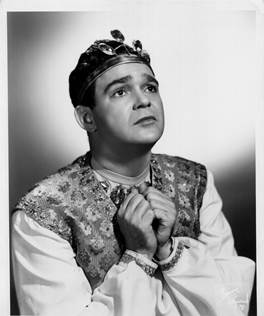
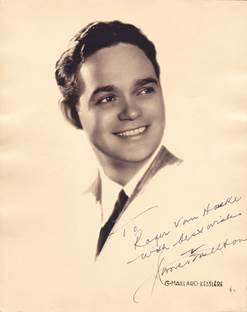
(courtesy Metropolitan Opera Archive and Charles Mintzer collection)
Charles Mintzer